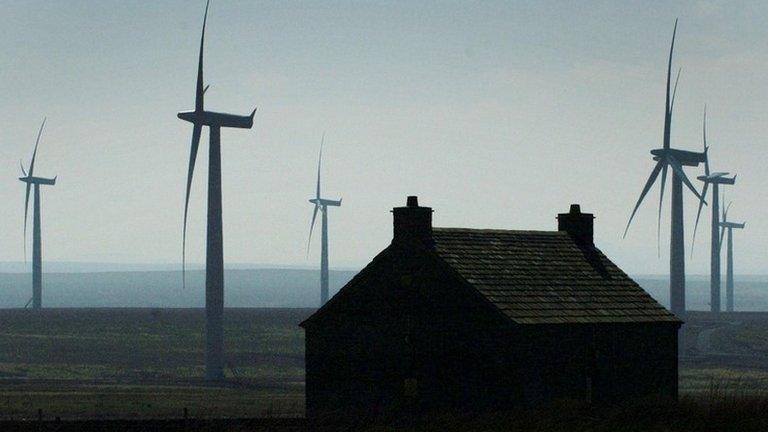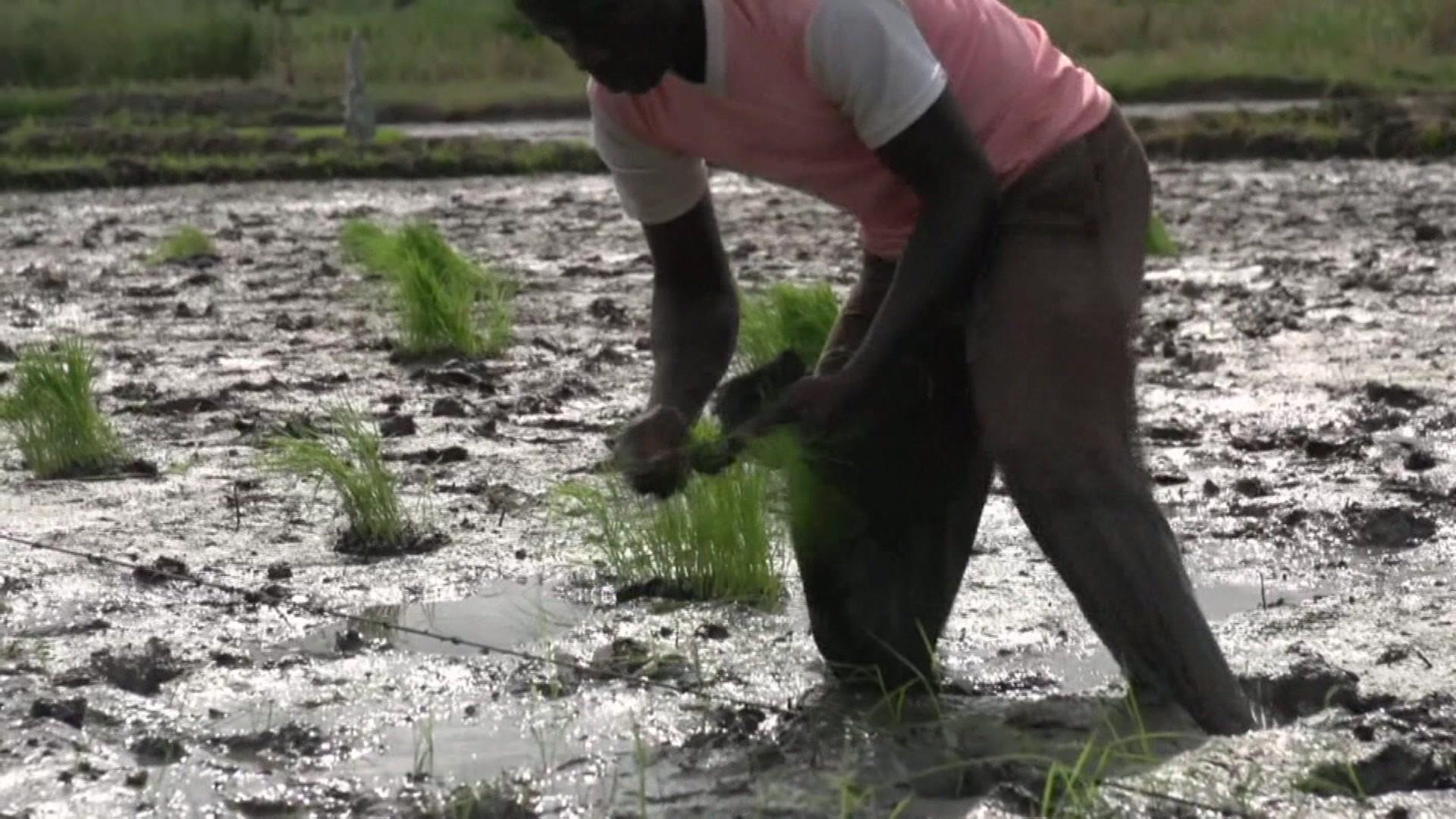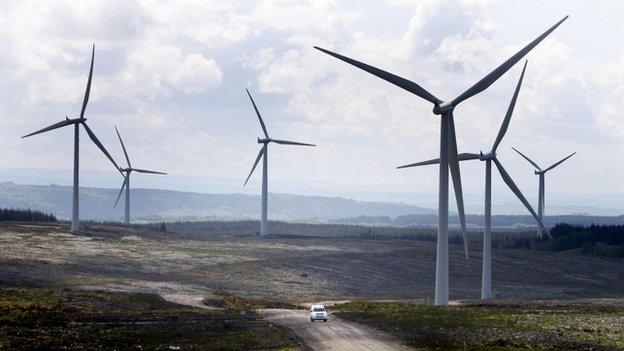Climate change action must be accelerated says advisory body
- Published

The committee said "strong action" was needed to achieve "ambitious" carbon objectives
Scotland must accelerate efforts to reduce carbon emissions if it is to remain an example to the rest of the UK, according to a new report.
The Committee on Climate Change provides expert, independent advice to the Scottish government.
Its latest publication has recommended emissions reductions of just over 60% by 2030.
The Scottish government said it recognised the need to maintain its "high ambition approach".
Scotland's emissions targets are calculated using 1990 as a baseline.
The committee's latest advice is based on evidence taken from government, industry, NGOs and other key stakeholders. It also held public hearings and has carried out its own analysis.
'Positive approach should be accelerated'
The report said Scotland has "made good progress in reducing its emissions to date".
In 2013, emissions had fallen by 38% on 1990 levels and were on track to exceed the target of 42% by 2020 set out in the Climate Change (Scotland) Act.
The committee said its recommended emissions targets for 2028-2032 continued along that "ambitious trajectory", putting Scotland on track for a reduction of at least 80% in 2050.
However it said they were "stretching objectives" which would need "strong action" including:
Low carbon heat in about 30% of homes by 2030
Low emission (e.g. electric) vehicles comprising about 65% of new car and van sales by 2030
Afforestation involving 16,000 hectares per year of new forest planting.
Electricity decarbonisation to reduce emissions from 220 gCO2/kWh to below Scotland's legislated target of 50 gCO2/kWh.
Lord Deben, chairman of the Committee on Climate Change, said: "Scotland is leading the UK in its ambitious approach to tackling climate change and is to be commended for doing so.
"There is a lot of positive action already under way in Scotland, driven by both its vibrant renewable sector and its bold policy approaches. This must now be accelerated.
"New policies will be required to meet these ambitious but achievable carbon objectives. With these actions Scotland can continue as an example to the rest of the UK in its approach to address climate change."
The Scottish government's plan to cut air passenger duty has already led to criticism from climate campaigners.
They have pointed out that Scotland's interim climate change targets have repeatedly been missed.
Commenting on the latest report from the committee, the Scottish government's Climate Change Minister Aileen McLeod said: "We are on track to exceed our 2020 target for a 42% reduction from baseline levels in greenhouse gas emissions and have outperformed the UK as a whole in every year since 2010. Out of the Western European EU-15 countries, only Sweden has achieved greater reductions to date.
"In their advice, the committee recognise Scotland's high ambition and progress to date. I am particularly pleased that the Committee has acknowledged that Scotland would have met all of its fixed annual targets to date, had it not been for technical improvements to the way we account for greenhouse gas emissions.
"The committee's current advice on how best to maintain our high ambition approach will be taken into account when Scotland's next batch of targets are set in October."
'Looking carefully at air passenger tax cut'
Meanwhile, a member of the the UK Committee on Climate Change, Professor Jim Skea, told BBC Scotland any cut to air passenger duty would "inevitably" increase emissions and result in additional cuts in other sectors.
He explained: "I'm afraid we do not know yet what the exact impact would be on Scotland's emissions but it's fair to say that inevitably emissions will increase because of the air passenger duty change.
"The committee will be coming back in September to do a report to the Scottish Government and I'm sure that's a topic we will look at in some detail."
- Published10 March 2016

- Published22 January 2016

- Published13 December 2015

- Published7 December 2015

- Published9 June 2015
